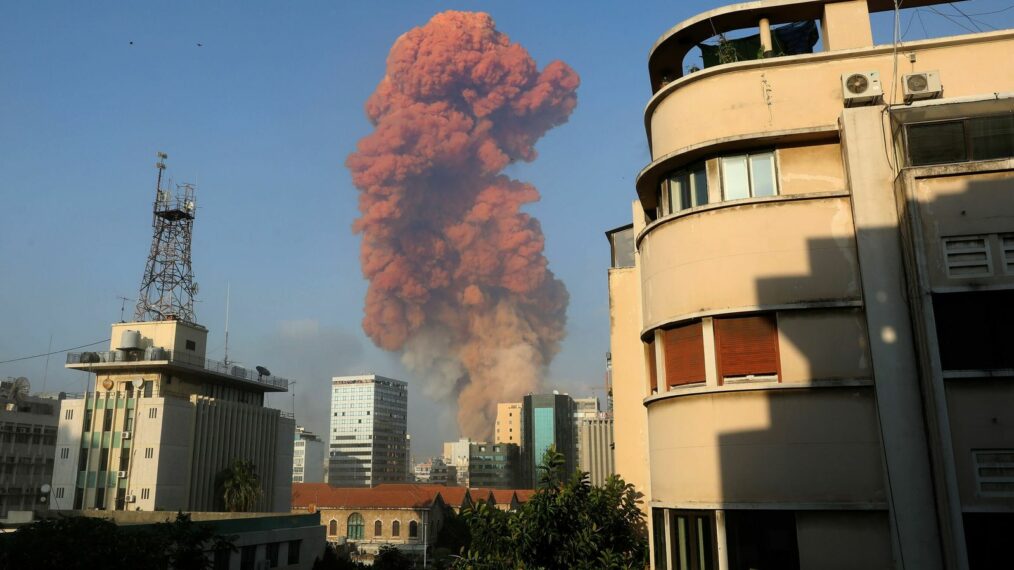
Personal Reflections on the Tragedy in Beirut
Editor’s Note: Rise to Peace Research Fellow Cameron Hoffman has a close connection with Beirut, Lebanon. He spoke with some of his friends that experienced the August 4th blast and they offered their candid insights. When placed into the context of political and state security, the explosion took on more meaning than just a tragedy. These are personal reflections that will hopefully lead to an enhanced interest in the Lebanese crisis in our readers.
On August 4, a massive explosion rocked the city of Beirut, Lebanon. Improper storage of 2,750 tons of ammonium nitrate — an extremely explosive chemical that is found in fertilizers — ignited and caused a blast that left 135 people dead, over 5000 wounded, and displaced over 300,000. Damages are estimated to be approximately $ 15 billion USD.
This day hit very close to home as I spent my summers living in Beirut and still have friends there to this day. I spoke with them a day after the catastrophe only to learn that many members of the church I attended experienced extensive damage to their homes and one close friend is hospitalized after glass pierced his liver following the explosion. As well, the building of the church I attended (over 2.5 miles from the blast site) had its windows shattered into the sanctuary area (sitting area where pews are located). There is significant need for basic supplies like food and water.
Grief and pain turned to rage in the days following the explosion. It became increasingly clear that the accident was easily avoidable if it was not for the level of corruption and mismanagement typical of the Lebanese government. A growing number of e-mails and public court documents show that many government officials knew that the ammonium nitrate seized from a Russian vessel was improperly stored and extremely dangerous for over six years.
The Lebanese people blame the government for the disaster. My friend Moufid said that citizens can no longer tolerate the apathy, mismanagement and corruption any longer. Another friend, Jenny, stated that the protesters and people in general may be unsure of direct responsibility, but they are “fed up” with the whole system and want accountability. She offered that the explosion was merely a “cherry on top” of the deteriorating economic and political situation in Lebanon — a situation that drew millions into the streets before COVID-19 sent them back into their homes.
Indeed, this is a turning point for the Lebanese government. Popular calls for revolution continue to grow and French president Emmanuel Macron — who is overseeing French aid to Lebanon — berated the Lebanese political system as corrupt and in need of “deep change.” His trip to Beirut, and subsequent speeches, echoed the chants of hundreds of protesters that flocked in the streets. He called the explosion “a metaphor for Lebanon’s current crisis,” and said that Lebanon was in need of “a new political order.” Further, Macron stressed the need for an audit of the central bank. He expressed, “If there is no audit of the central bank, in a few months there will be no more imports and then there will be a lack of fuel and of food.”
Additionally, France is organizing an international conference to raise support and assistance for Lebanon, and all funds raised will be handled with “full transparency.” Macron stated that, “there will be no blank checks to a system that does not have the trust of its own people,” and that Lebanese leaders must provide “answers to freedom, reform, and anti-corruption.”
In asking Jenny what she thought was needed for Lebanon to recover she said, “we need new politicians. To start from scratch and remove the current structure and corruption. The people are not going to be fooled anymore, and the corrupt politicians need to be taken to court.” She is one of thousands of young adults who feel the same sentiment.
The event is undoubtedly catastrophic, but hopefully it will lead to changes that the Lebanese people desperately need and deserve. Moufid summarized his thoughts about the future, “We Lebanese are used to destruction and rebuilding again. I believe that God will use this [the explosion] in a way to help rebuild the economy. They will need to rebuild the port as its important to our economy, but we will come back. It’s natural for us.”



